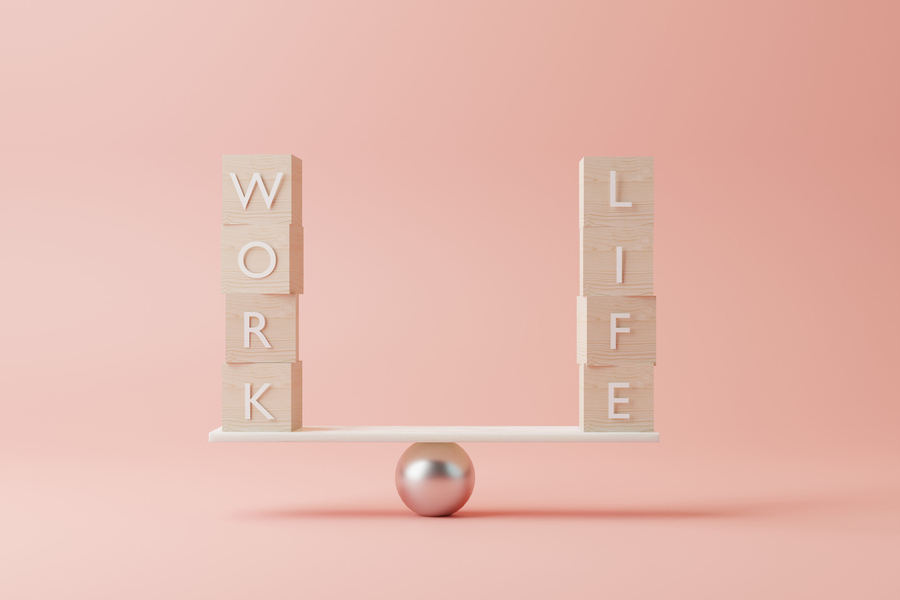[The author consults with corporates on areas of employee well-being, structured operations and HR. When people burn out or suffer stress at work he advises balance. But how does one maintain balance in a continuously warped world of work? He takes an investment viewpoint, a little tongue-in-cheek.]
A doctor recently informed a group of 60-year-old friends that if “at our age” we could stand on one leg for 15 seconds then we “are in good condition”. Naturally we all just had to try it! I’m not sure what the criteria for a good condition could be but this whole discussion on “balance” had me thinking of how we use the word in multiple ways to influence our lives. Then again, there’s this 80-year-old gentleman, having seen quite a few decades he refuses to “slow down”. He gets up early, takes a long healthy walk, then goes to work for free in a brace of social organisations while helping his community in running things for the youth. His son, a die-hard sportsman opines “the worst advice that anyone can be given is to slow down”.
It's all about balance. A balanced diet, a balanced lifestyle and a well balanced bank account! Sounds Utopian? It probably is. The reality is closer to chasing an elusive lifestyle than focusing on balance – worrying more about increasing your bank balance than investing in physical, social or mental balance. But many organisations make it sound like it's worth the pain. To quote Imagine Dragons, “Pa- ii- n .. you made me a (you made me a) .. believer!” Corporates will convince you that the pain is worth it, it adds to the top line. But at the end of the day the participants in the rat race are... rats! PAIN is a four-letter word.
Four-letter words are traditionally disallowed in family magazines, but I'm going to use a couple more – WORK and LIFE. There's this much quoted phrase about reaching a “work-life balance”. All the motivational speakers, HR and spiritual gurus will talk about it. At a small gathering some years ago, an extremely well-balanced speaker posed a question to us: why do we consider work and life as mutually exclusive, or opposed to each other? It's not work versus life. Work is a part of life and an essential part that actually promotes the other part – relaxation and spending on oneself. So we should consider work as an investment in a balanced life! Keep it as a moderate portfolio, in Mutual Fund terms.

‘We should consider work as an investment in a balanced life! Keep it as a moderate portfolio, in Mutual Fund terms’ iStock photograph
Other exciting motivational phrases that pour out from bosses are: "Find a job you love, love your job". Easier said than done. Other glamorous phrases include "choose your own boss" – the reality is that most of us take what and who we get and then spend a lifetime trying to stay on top of the work. Entrepreneurs, owners of their own companies, tend to work all the time and expect employees at lower grades to do the same. We all have families and most of us work primarily for our families, not merely for the success of the business. We've had young mothers cutting short maternity leave so they could get back to being productive in another sense.
For maintaining sanity I've encountered and tried a few things which I'm sharing here:
A very senior HR manager has a “quiet hour” before office every day - phones and other distractions are switched off or silent, left face down. He reaches the office an hour early, shuts his door, keeps his laptop off and uses a paper diary to check off the previous day and plan the day ahead. One whole hour. Every day.
Another technique is “Worst Case Scenario”. A manager I know was constantly on call, streams of people lining up for solutions. She created Question Hour - a period during which everyone could reach out to her and not at any other time. If she was not available what was the worst that would take place? After a while the number of random visitors dwindled to a trickle, but the work got done.
Earn your leave, take your leave! Leave days are there to keep you sane, recharge batteries. The corporate I worked for had a rule that 10 days of leave could not be carried over or encashed at the end of the year. You either took them or forfeited them. Managers were instructed to send you on paid leave from time to time. Some smart people planned 2.5 days’ leave a month so that in case they left, there was nothing in stock! And everyone else thought they were not committed. They were just maintaining balance.
Build on a financial model - think investment - “all eggs in one basket” is a very short-term solution. Diversify. The best investments are diversified across different kinds of schemes. In my life, I have met senior executives who rush over after work to perform in theatre, or pick up a camera and exhibit their photographs. Some play musical instruments - I’ve even met a rock band of Medical Doctors, de-stressing from the operating theatre. Most people sing – it’s a great relief and doesn’t require an audience. People write – blogs, journals, poetry, even a bit of drawing and painting. Others work out at the gym or play football after hours. Many of us read, either books or on a device, but we read. And there’s the time honoured practice of meditation, yoga and other forms of physical activity to spread the stress around. And some lucky ones can tick ALL of the above.
My investment acronym is SIPS. Investing in Spiritual, Intellectual, Physical and Social activities helps to keep one well rounded – fill in for what the job doesn't give you. If you’re not doing any of the above, it’s time to review your portfolio.
The warning signs of burnout are all around us. Skipping meals. Skipping leaves. Drinking as part of the “company culture”. Working late because “we only get inspiration after working hours”. And delaying or skipping meals just because you’re too busy or can’t find the time? Decades ago a colleague of mine gave me this mantra: For some things in life you don’t find time, you make the time!
So the next time someone bumps into you singing karaoke at the pub, declaiming at a debate, travelling with a camera, painting on canvas or just standing on one leg for 15 seconds, tell them it’s all about work-life balance or give them the financial term, “I’m balancing my portfolio”.


